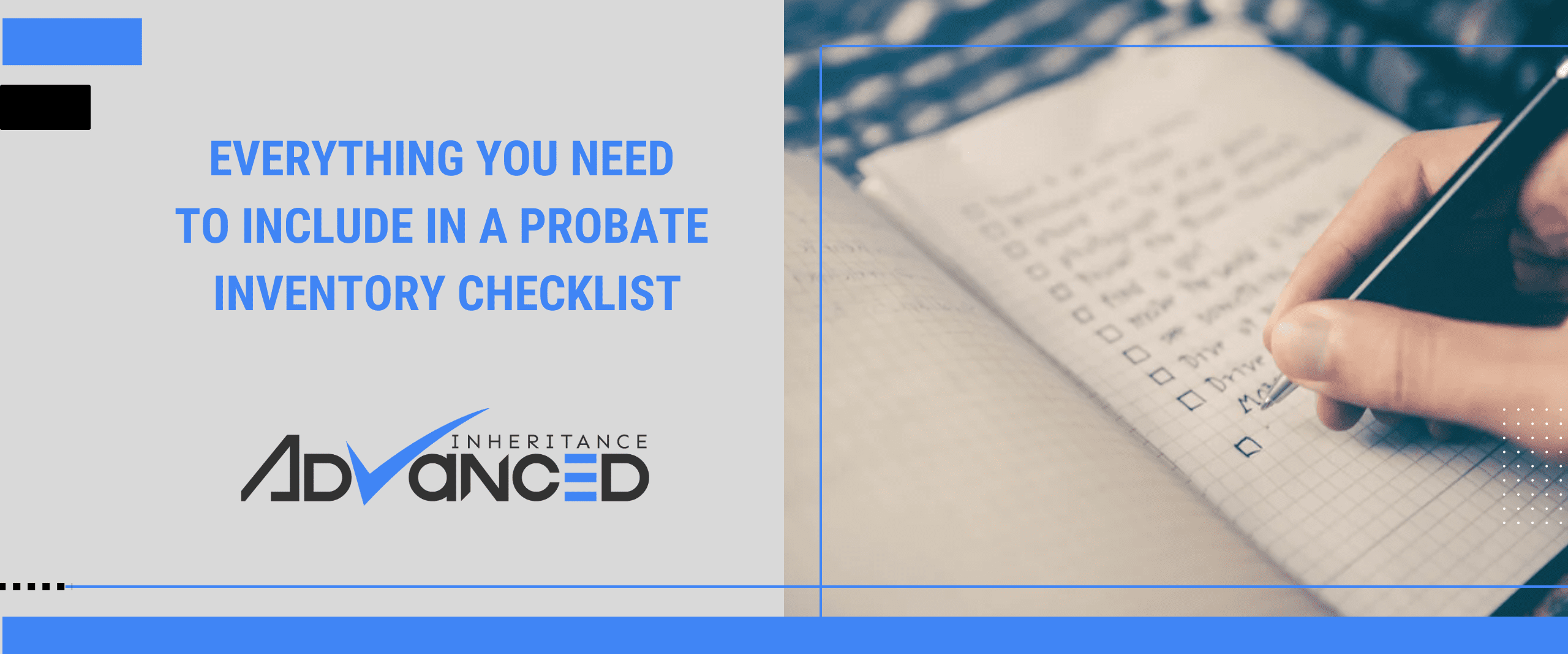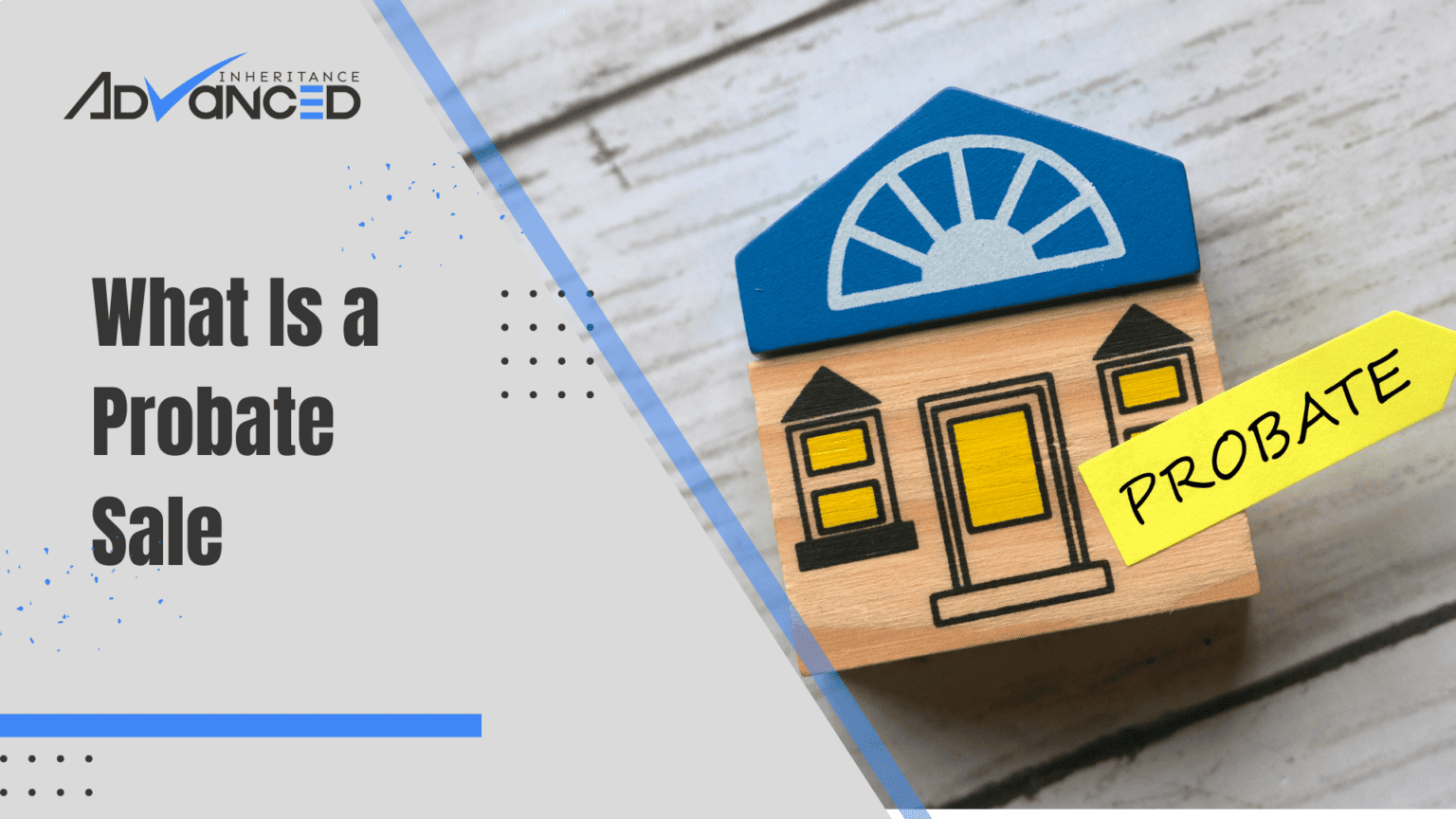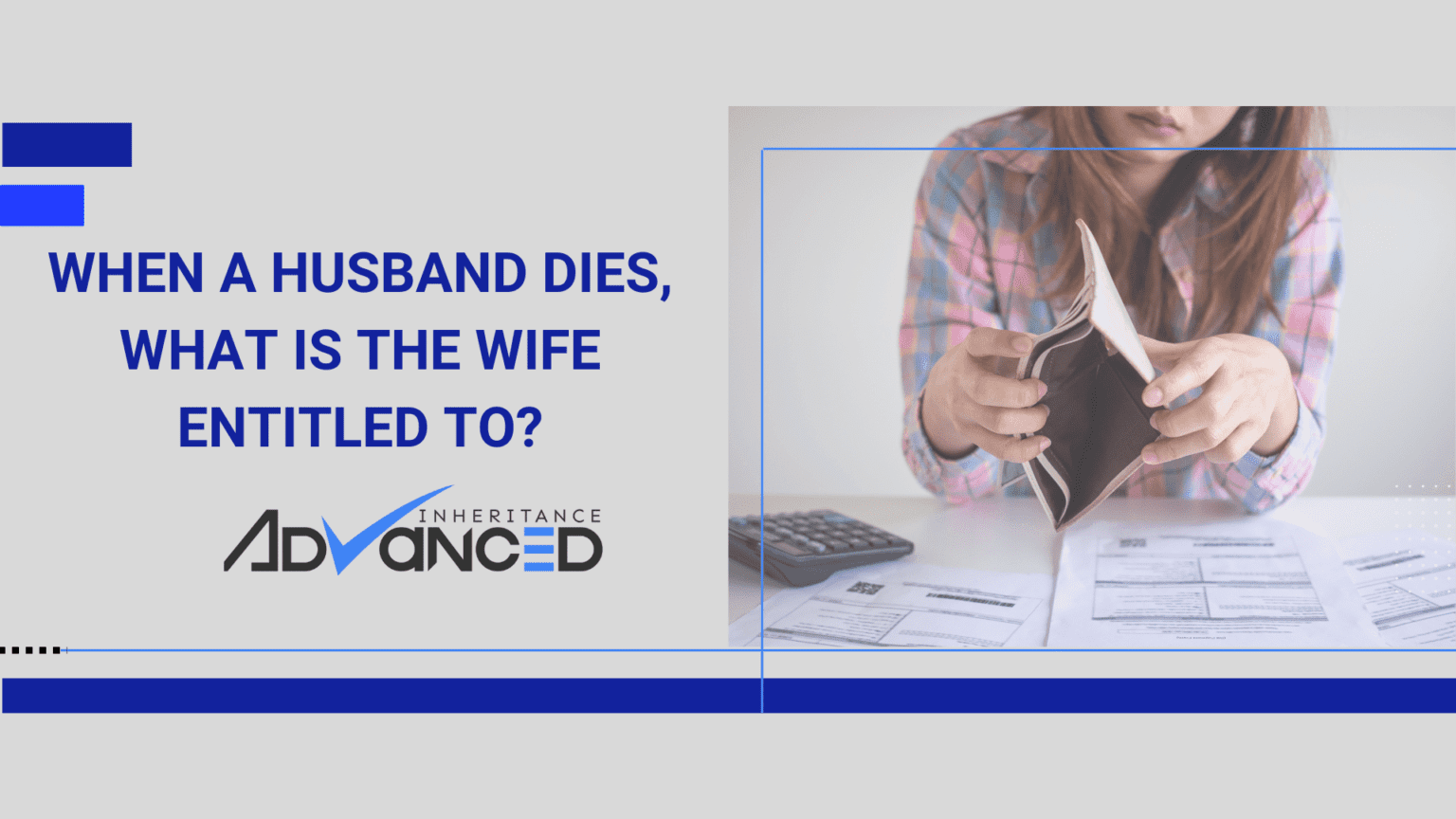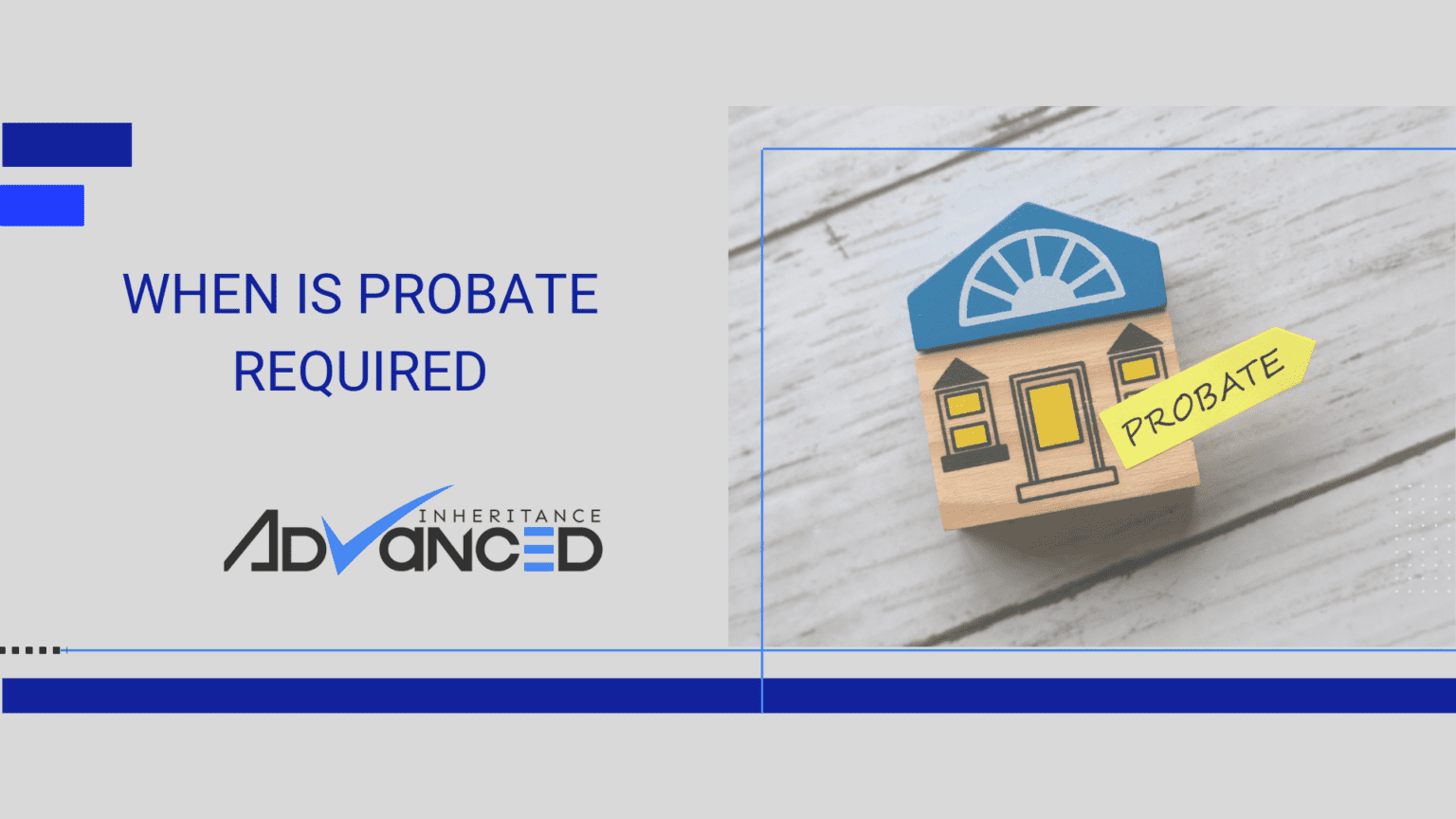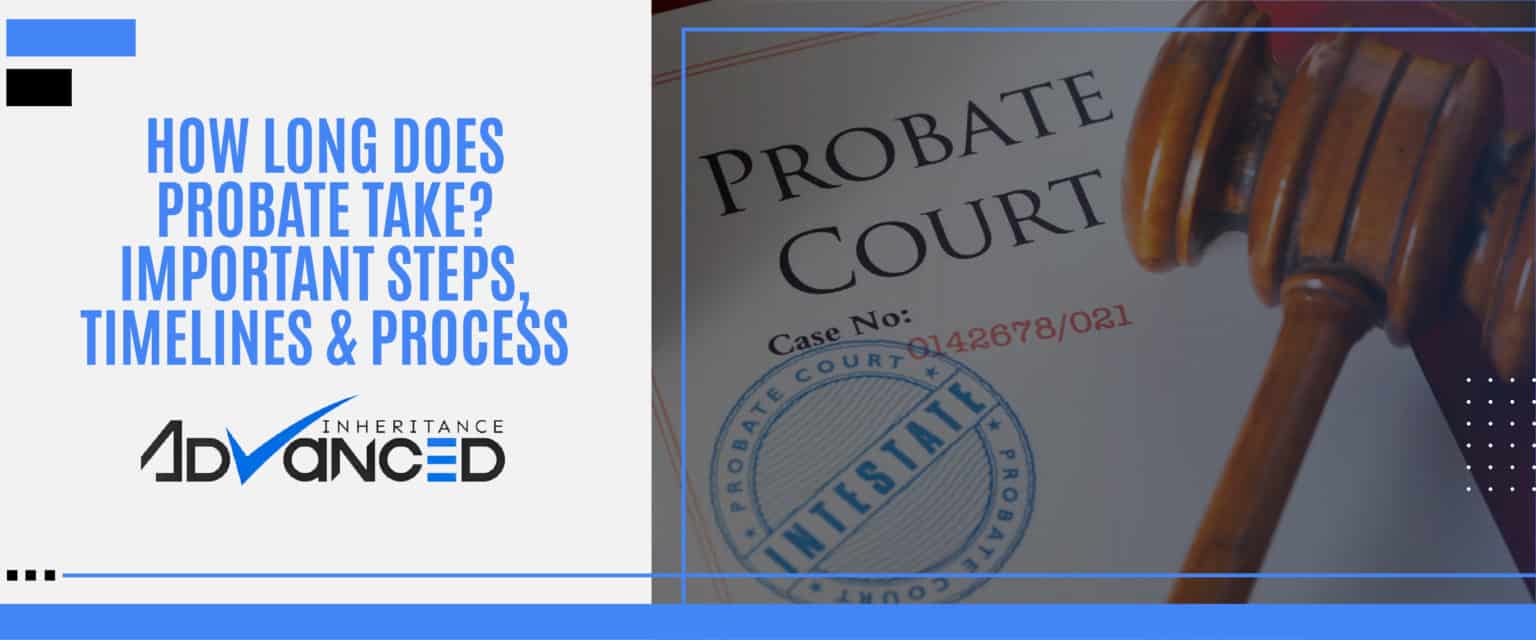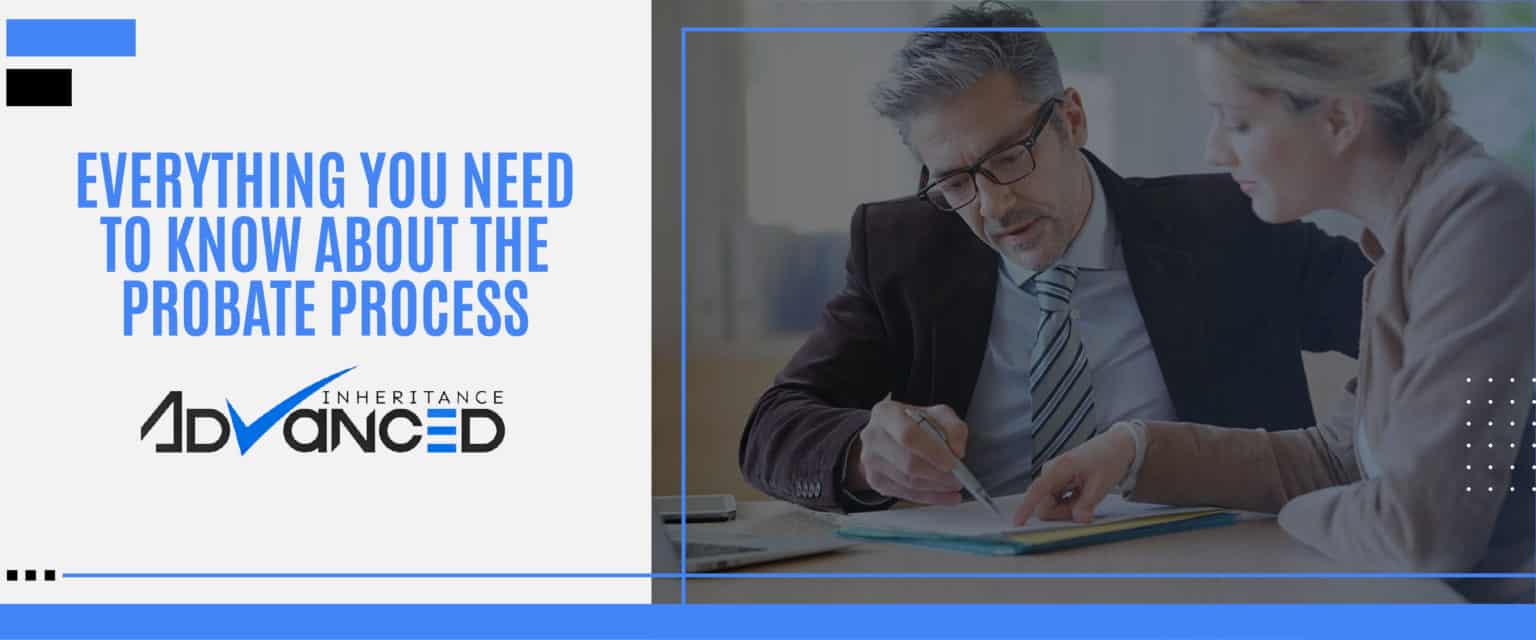Most people have little to no idea of what to do if someone dies and they have been appointed as the executor or personal representative to settle the estate. You must understand that probate is a legal process that commences after the death of an individual and its essence is to mainly supervise the distribution of assets and enforce the will of the deceased. To carry out your duties appropriately, you will need a probate account checklist.
Importance of a probate account checklist
Most states have a time limit within which the personal representative or executor of the estate must file a comprehensive inventory of the estate. Because death is often sudden and bereavement an emotional period, it is advisable to have a checklist of what should be included or excluded in the probate inventory. This will reduce mistakes on your part and help you wrap up the probate process much quicker.
As the personal representative or executor of the estate, you are also legally charged with protecting the deceased’s property until all debts are settled and what is left passed on as inheritances to the beneficiaries. This makes having a sound idea of the probate inventory very essential. A probate account checklist is very useful in knowing what to include as part of the inventory and what to exclude. Another importance of the inventory checklist is that it makes meeting the legal requirements less cumbersome.
A common requirement for probate in many states is the preparation of an inventory of the deceased’s assets and the value of those assets at the time of death. Of course there are cases which do not require filing a probate inventory especially when it is specifically stated in the will or when the probate court waives this requirement on instructions from the residual legatees or distributees. Nevertheless, it is important to have a solid idea of how probate inventory works. What you should include and exclude in the probate account checklist are found below;
What is included in a probate account checklist
Finances
The probate account must include the financial assets owned by the deceased and their value at the time of death. As the personal representative or executor of the estate you are mandated by law to locate the safety deposit boxes and bank and brokerage accounts owned by the deceased.
The probate process often requires that you take the death certificate to the banks or financial institutions before you are given access to these accounts. Financial assets also include items like annuities, certificates of deposits, shares, IRAs, savings bonds and 401(ks).
As part of the finances, you must also list information about expected incomes, dividends and final paychecks. Records of finances for probate does not entirely comprise assets, you must also tally the liabilities. These include medical bills, student loans, alimony payments, childcare support, credit card bills and other verifiable debts. Getting the clear picture of finances provided by this inventory makes the probate process easy.
Vehicles
Vehicles form another important item category that should be included in the probate account checklist. As the personal representative or executor of the estate of the deceased, you are required to identify the titles of vehicles owned by the deceased. These include cars, boats, recreational vehicles and motorcycles.
In listing vehicles during the probate process, you must affix a value to each item. This is done using the NADA value or the Kelley Blue Book. Information such as the VIN, model, make and year of the vehicles must also be provided.
Important items often overlooked during probate inventory listing which can lead to problems in the future are outstanding vehicle loans. Details of each loan (principal, interest, repayment schedules) must be provided as part of probate inventory.
Personal Properties
The personal properties of the deceased must be accounted for and included in the probate inventory. This is a very important category and you have to be careful in providing details. Personal properties encompass a wide variety of items including household goods, it is therefore advisable that you create photo or video records of each item in order to establish very clear probate records. Personal properties include jewelry, clothing, furniture, artwork, antiques, books, sports memorabilia, firearms and household items.
Sometimes, ascertaining the true value of some personal properties such as antiques, coins, artworks, jewelries and sport memorabilia will require the services of professional appraisers. You should therefore be prepared to expend extra effort in hiring one.
Real Estate
The real estate holdings of the deceased must also be included as part of the probate account. If the deceased is a homeowner, you already have a clear indication of the existence of real estate holdings. You should also investigate other real estate properties and find their deeds. In assigning values for real estate holdings you can extrapolate from the most recent property tax assessments or engage the services of a professional appraiser.
As part of probate inventory records, you must also provide information on property tax payments, homeowner’s insurance, existing mortgage, financial institutions holding the mortgage and the mortgage balance. These should be provided for each property listed in the probate records.
Business Interests
The business interests of the deceased must also be included as part of the probate account. This will require you to submit information on the type of business, shares, interests, liens, tax status, licenses, loans, and restrictions placed on selling in the will.
Other Interests
As the executor of the estate, you must also investigate and provide information on other rights, assets and interests of the deceased that do not fall into any of the categories above. These include intellectual properties such as copyrights, patents and trademarks, royalties, digital rights and timeshare interests.
Don't Wait for Probate
What is excluded in a probate account checklist
Having a solid knowledge of what should be excluded in the probate account checklist is also important. Not all the assets owned by the deceased will be listed as part of the probate inventory. The requirement for listing is that a particular asset bears only the name of the deceased in its title before it can be listed. Generally, assets that are jointly- owned, in trust or with beneficiary designations are not listed as part of probate inventory.
Jointly Owned Assets
Assets which are jointly owned by the deceased and some other party and binded by the right of survivorship law cannot be listed in probate. On the death of the deceased, ownership reverts to the surviving owner. Even if the will states that the property should be inherited by the residual legatees of the deceased, the right of survivorship stands.
Trust Assets
Assets that are held in trust are not listed as part of probate inventory especially if the trust is a revocable living trust. However, if the trust is testamentary the assets will go through probate. As the executor of the estate, you must ascertain the type of trust and take the appropriate steps. This will often require taking legal advice.
Beneficiary Designations
Assets that have been designated to a beneficiary are not included in the probate inventory. Certain bank accounts, IRAs, insurance policies, and retirement plans allow individuals to name beneficiaries to which assets revert on the death of the holder. In probate cases where the beneficiary dies before the holder or is incapacitated, the assets go through probate and are listed as part of the inventory. Also, if the beneficiary is a minor, the asset will be listed as part of the inventory.

